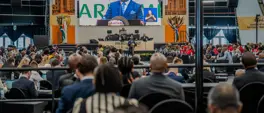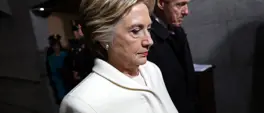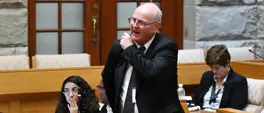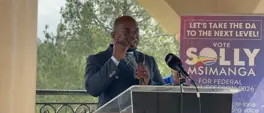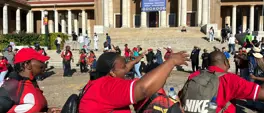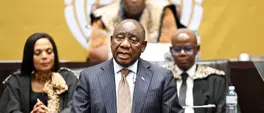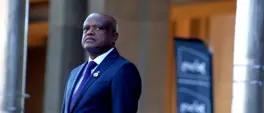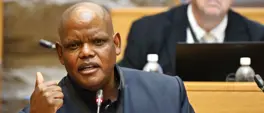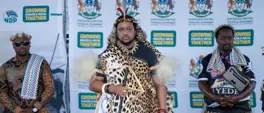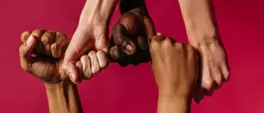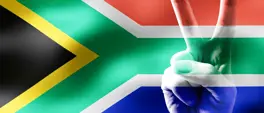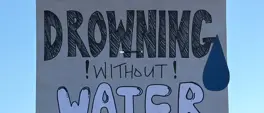YONELA DIKO: Is SA facing a cultural slippage that may produce a Trump?
Yonela Diko
8 November 2024 | 10:50The recent South African court judgment that men can take the surnames of their wives made me wonder whether we are not planting a seed that will one day catapult an obscure populist leader to the national stage, writes Yonela Diko.
Many thought leaders have defined the enduring popularity of Donald Trump as a result of anger among Americans who have seen over the last two decades, at least since after Ronald Reagan, a slippage in cultural values caused by legality of many anti-conservative rights which have been seen as an assault on traditional Christian values.
The recent South African court judgment that men can take the surnames of their wives made me wonder whether we are not planting a seed that will one day catapult an obscure populist leader to the national stage to light up and burn the country at the seams.
There is no doubt that at a liberal level, individuals have a right to do whatever they desire without hurting others. However, at a community level, some individual rights have always had to align with prevailing community values to preserve communal identity and culture.
According to the 2022 Census, 85.3% of South Africans identify as Christians. Only 2.9% of the population claims to have no religious affiliation. That means 96.1% of the population practices some form of religion or faith affiliation.
This, I'd say, makes South Africa a conservative country, with traditional values. While the nature of Christianity is diverse and languages and cultures are many, they all share fundamental conservative values. There is a great blend of these traditional values with urbanisation. However, South Africans remain very much rooted in the culture and values of their forebearers.
Religion and culture form the imagery and terminology through which people understand the meaning of their own existence, guide their morality, and their interpretation of an otherwise would-be meaningless existence. Religion helps fortify people’s sense of fairness and sense of responsibility and serves as a guide to people’s everyday life decisions about family, marriage, community, and even sexual intimacy.
Liberalism that is based on the "cult of individualism", where community values are tramped and trashed in the name of individual freedoms, almost always leads to people seeking an authoritarian leader to enforce their slipping values.
IDEOLOGICAL ORIENTATION OF OUR JUDGES
I have always loathed the circus of appointing judges in the United States. It is partisan and ugly. But after the reversal of so many historical judgements by the Supreme Court on ideological lines, I now see the importance of the battle for judges, whatever the circus it may cause.
In South Africa’s Judicial Service Commission (JSC), there is never really a focus on the judge’s views on, say, abortion or gay marriage or media freedom - these are in many ways assumed to already be coded in the Constitution.
However, we have seen through High Court judges like Mabel Jansen that a judge’s own beliefs and prejudices matter, and do heavily influence their judgments.
It is, for example, possible that had the case of husbands taking the surnames of their wives taken place in high courts of largely rural provinces like the Eastern Cape or Limpopo, the judgment would have been different.
Unfortunately, in whichever high court, a case is adjudicated its outcomes affect us all.
Urbanisation plays a role in influencing people to be liberal because of the loss of community and entrenches a cult of individualism. In urban centres, you are largely on your own. In less urban areas, however, community is still what binds people, and communal values are seen as sacrosanct.
ROLE OF URBAN MEDIA ON VALUES
While our society is largely Christian and conservative, urban media is in the hands of liberals.
Their ability to mass produce messages and distribute them across media platforms all around the country has the potential to shape society’s psyche about their own values. It also has the potential to turn minority views into dominant ones through its force multiplier.
If the media puts out liberal tropes daily, and most people begin to draw back into their corners, then a false sense of our values is created.
It takes one man to rebel against the liberal assault on values for everyone else to come out of their corners and begin to claw back the lost ground. Unfortunately, the leaders of these rebellions usually have their own troubling flaws, but liberals hand over the country to them on a silver platter.
INTRANSIGENT MINORITY VS FLEXIBLE MAJORITY
There may well be an extremely passionate few who want husbands to take a wife’s surname over and against a flexible or even an indifferent majority, which may create an illusion of acceptance or support of the view.
There are limits to the majority’s flexibility and indifference, and when that limit is reached, the accusations of dictatorship and authoritarianism start flying around. All the while, it is simply the majority reclaiming their values and culture from the dictatorship of the intransigent minority.
South Africa has the advantage of walking a path that others have walked before. We can draw lessons before we push society towards a troubled leader who promises to protect their values.
Yonela Diko is the former spokesperson for the Minister of Human Settlements, Water and Sanitation.
Get the whole picture 💡
Take a look at the topic timeline for all related articles.
